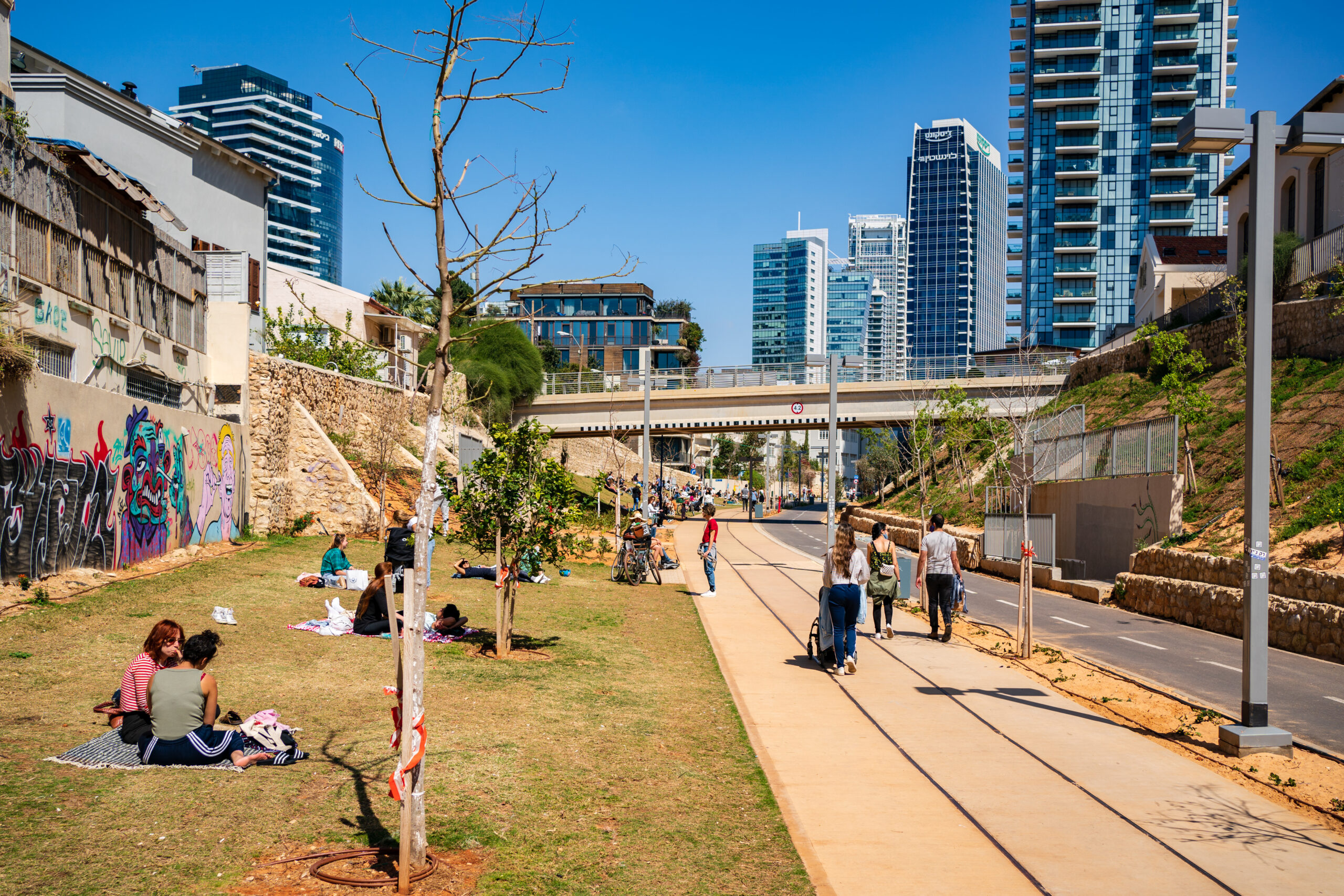Haifa Bay, with its intensive industrial activity, crude oil storage tanks near two seaports, and the planned construction of a third port, stands out as one of the most significant sources of environmental pollution in Israel.
Monitoring data from the Ministry of Environmental Protection indicates significant emissions of pollutants into the air, including abnormal benzene emissions from the BAZAN compound. Benzene, a known carcinogen for humans, has been emitted for decades. Meanwhile, data from the Ministry of Health highlights a consistent increase in morbidity related to air pollution in Haifa Bay, including respiratory and malignant diseases, as well as birth defects.
The concentration of hazardous substances in Haifa Bay poses risks to the population, which are exacerbated by its proximity to a geological fault line susceptible to earthquakes and its strategic vulnerability during times of conflict.
Our legal victory in 2019, along with other environmental organizations, led to cancellation of expansion of the ‘BAZAN’ complex of petrochemical and other polluting industries. After several years’ delay, there is a renewed planning process underway which aims to enhance the quality of life, public health, and environmental restoration while ensuring the integration of the Bay area with surrounding neighborhoods, with the goal of establishing a metropolitan continuum.
No to expansion, yes to remediation
Adam Teva V’Din is pushing for the National Planning Authority to establish a comprehensive system of environmental assessment of all policies and plans relating to the innovation program, with appropriate reference to climate change impacts, as well as public participation in the process.
Background
In 2019, we, alongside Green Course and the Coalition for Public Health, filed an appeal to the Supreme Court against a previous decision of the Administrative Affairs Court in Haifa. The initial decision had approved the expansion plan for the BAZAN complex, despite ongoing environmental hazards. The Supreme Court overturned the decision, mandating that the plan be returned to the National Planning Authority for the preparation of detailed assessments of each new facility’s expected environmental impact resulting from the expansion of the BAZAN complex.
This unprecedented success of civil society organizations effectively halted the expansion and catalyzed the realization that a different vision must be pursued for the area, with the goal of eliminating the severe environmental and health hazards associated with polluting industries in Haifa Bay.
The redevelopment plan
In June 2021, a Committee of CEOs was established to address the Haifa Bay issue and in March 2022, Government Resolution 1231 was adopted, titled “Strategy for the Development and Promotion of Haifa Bay and Amendment of a Government Decision.” This resolution endorsed the Committee’s recommendations and outlined the discontinuation of petrochemical industry activities in Haifa Bay within a decade. Simultaneously, a comprehensive development or innovation plan for the area was proposed, encompassing the establishment of knowledge-intensive employment centers, residential development, the enhancement of public transportation infrastructure, the creation of a metropolitan park, the restoration of the Saadia stream, soil pollution remediation, and more.
Three National Outline Plans
To implement these recommendations and the government’s decision, three National Outline Plans are currently being developed: National Outline Plan #75, National Outline Plan #75 Runoff Management, and National Outline Plan 75 Energy.
As the representatives of environmental organizations to the Committee for the Protection of the Coastal Environment and the National Planning Authority, we have presented our position regarding situation. Adam Teva V’Din’s position is that. We believe that reviews of National Outline Plan #75 should be suspended until several crucial points are incorporated. The following are the main points we propose:
- Alignment of the three separate plans – National Outline Plan #75, National Outline Plan #75 Runoff Management, and National Outline Plan 75 Energy as well as simultaneous advancement of detailed plans, is essential to ensure consistency in information regarding existing contamination, schedules for factory evacuation, and hazard remediation.
- Public health should not be compromised, and construction should not commence before the area has undergone appropriate purification and cleaning processes. Currently, it is unclear whether residential construction plans will be developed adjacent to existing or planned energy infrastructures or other pollution sources such as transportation, ports, industries, pipelines, and tanks. We believe that this should be addressed comprehensively in one plan to serve as the foundation for land use planning.
- The proposed area for the coastal park in the plan should be expanded, taking into account the projected rise in sea levels. Additionally, the planned metropolitan park should be enlarged and connected to the coastal park and the Saadia stream, creating a chain of public open spaces.
- Public participation procedures should be expanded at every stage of the planning process, including the transparent publication of information about various alternatives
- Climate crisis adaptative measures such as managing runoff and flooding, accounting for sea level rise, reducing energy consumption, avoiding the creation of urban heat islands, and minimizing private car usage should be incorporated.
- An integrated system of sustainable transportation, including walking and bicycle networks, should be prioritized, and development around public transportation hubs should be prioritized.
- An ambitious goal of 70% sustainable transportation usage should be pursued, encompassing a comprehensive network and integrated system that facilitates walking, cycling, and other sustainable modes of transportation.





